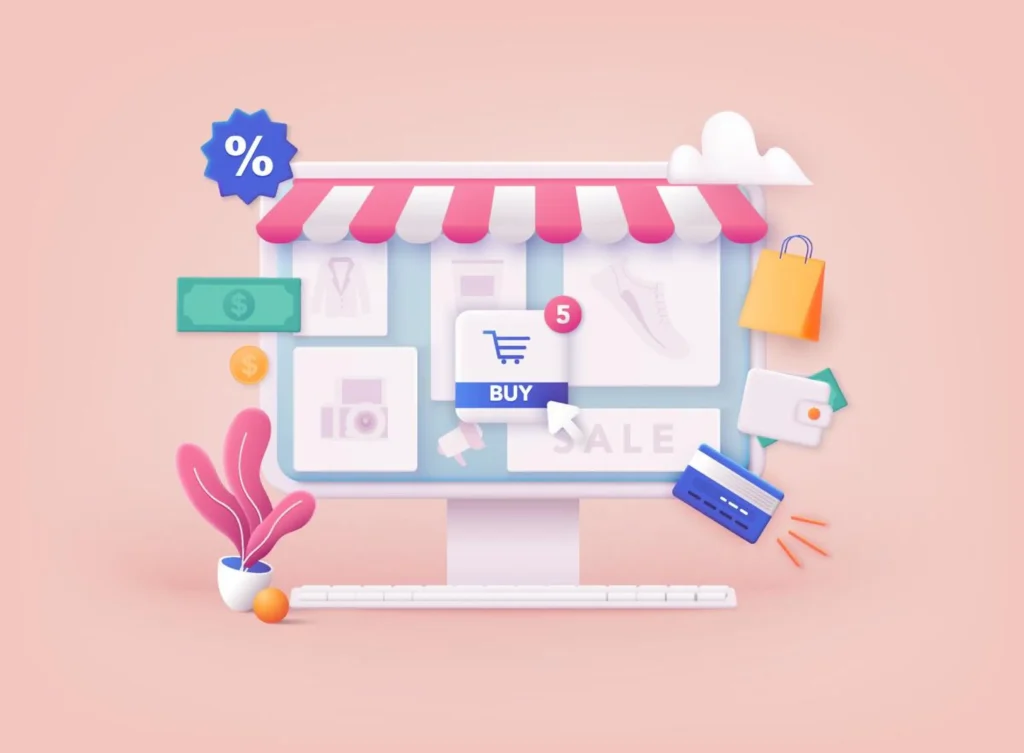In the rapidly evolving world of e-commerce, Direct-to-Consumer (D2C) has emerged as a game-changing business model.
D2C refers to the strategy where manufacturers sell their products directly to consumers, bypassing traditional retail channels.
This approach allows brands to establish a more intimate connection with their customers, gain better control over their branding and customer experience, and eliminate the need for intermediaries.
Table of Contents
What is Direct To Consumer (D2C)?

Direct To Consumer, often abbreviated as D2C, refers to a business model where brands sell their products directly to consumers without intermediaries like wholesalers, retailers, or third-party marketplaces.
This approach gives companies complete control over their brand, customer experience, and data, leading to enhanced profitability and better customer relationships.
Why D2C Is Important?
In recent years, the D2C model has experienced explosive growth, reshaping the e-commerce industry. The key drivers behind its popularity are:
1. Brand Authenticity
D2C empowers brands to communicate their unique story and values directly to consumers, fostering a sense of authenticity.
By establishing a one-on-one connection with customers, brands can forge deeper emotional bonds, gaining a competitive edge in a crowded market.
Read More: The Ultimate Guide to Brand Awareness
2. Data-Driven Insights
With D2C, brands have access to a wealth of first-party data, enabling them to gather valuable insights into consumer behavior, preferences, and pain points.
Armed with this data, businesses can optimize their marketing strategies, product offerings, and customer support to better meet their audience’s needs.
3. Enhanced Customer Experience
By cutting out middlemen, D2C brands can control every aspect of the customer journey.
This control enables them to deliver a seamless, personalized, and memorable experience, fostering customer loyalty and advocacy.
4. Flexibility and Innovation
D2C allows brands to swiftly adapt to market changes and consumer demands. It facilitates rapid product iterations, innovation, and testing, keeping businesses ahead of the curve in a fast-paced digital environment.
Crafting Your D2C Marketing Strategy

You must formulate a well-crafted strategy to outrank competitors and succeed in the D2C realm. Let’s explore the key steps to achieve this:
1. Identifying Your Target Audience
Before launching your D2C venture, conduct thorough market research to identify your target audience’s needs, preferences, and pain points.
Understanding your customers will lay the foundation for your marketing and product development efforts.
2. Building a Powerful Online Presence
An outstanding website is the cornerstone of your D2C strategy. Ensure that your site is visually appealing, user-friendly, and optimized for mobile devices.
Incorporate relevant keywords throughout your site’s content to boost your search engine rankings.
3. Leveraging Social Media Marketing
Social media platforms provide an excellent opportunity to engage with your audience, share compelling content, and build a loyal following.
Craft a robust social media marketing plan, creating a consistent brand voice across different platforms.
You Can Read our Guide: Social Media Marketing for Ecommerce
4. Embracing Content Marketing
Invest in high-quality content creation that adds value to your target audience.
Engaging blog posts, informative videos, and captivating visuals can establish your brand as an authority in your industry, attracting organic traffic and backlinks.
5. Implementing Email Marketing
Don’t underestimate the power of email marketing in nurturing leads and fostering customer loyalty.
Craft personalized, relevant, and engaging email campaigns to keep your audience informed and excited about your brand.
6. Offering Exceptional Customer Support
D2C’s success hinges on outstanding customer service. Provide multiple channels for customer support, respond promptly to queries, and go the extra mile to resolve issues.
Satisfied customers are more likely to become brand advocates.
Challenges and Solutions in D2C
While the D2C model offers tremendous opportunities, it also comes with its share of challenges. Let’s explore these hurdles and how to overcome them:

1. Logistics and Fulfillment
Managing logistics, inventory, and order fulfillment can be complex. Partnering with reliable third-party logistics providers and investing in robust inventory management systems can streamline these processes.
2. Competition from Established Brands
Established brands may already dominate your target market. To stand out, focus on your unique value proposition and the distinct advantages you offer to consumers.
3. Customer Acquisition Costs
Acquiring new customers can be expensive. Employ data-driven marketing strategies and optimize your marketing budget to maximize ROI.
4. Data Privacy and Security
As a D2C business, you must prioritize data privacy and security to build trust with your customers. Invest in secure technology and communicate transparently about your data practices.
India D2C Brand List: D2C Brand Tracker
Conclusion
In conclusion, the Direct To Consumer model is a powerful approach that empowers brands to thrive in the e-commerce landscape.
By understanding your audience, crafting a robust strategy, and overcoming challenges, you can outrank competitors and achieve long-term success. Embrace the D2C revolution, and unlock the full potential of your e-commerce venture.
Also Read: What is Angular Ecommerce?
Frequently Asked Question
What is the D2C business model?
The Direct-to-Consumer model involves selling products directly to consumers without intermediaries, such as wholesalers or retailers.
How can D2C brands differentiate themselves?
D2C brands can differentiate themselves by focusing on product quality, offering unique value propositions, and implementing personalized shopping experiences.
What is the full form of D2C?
D2C full form is Direct to Consumer.
